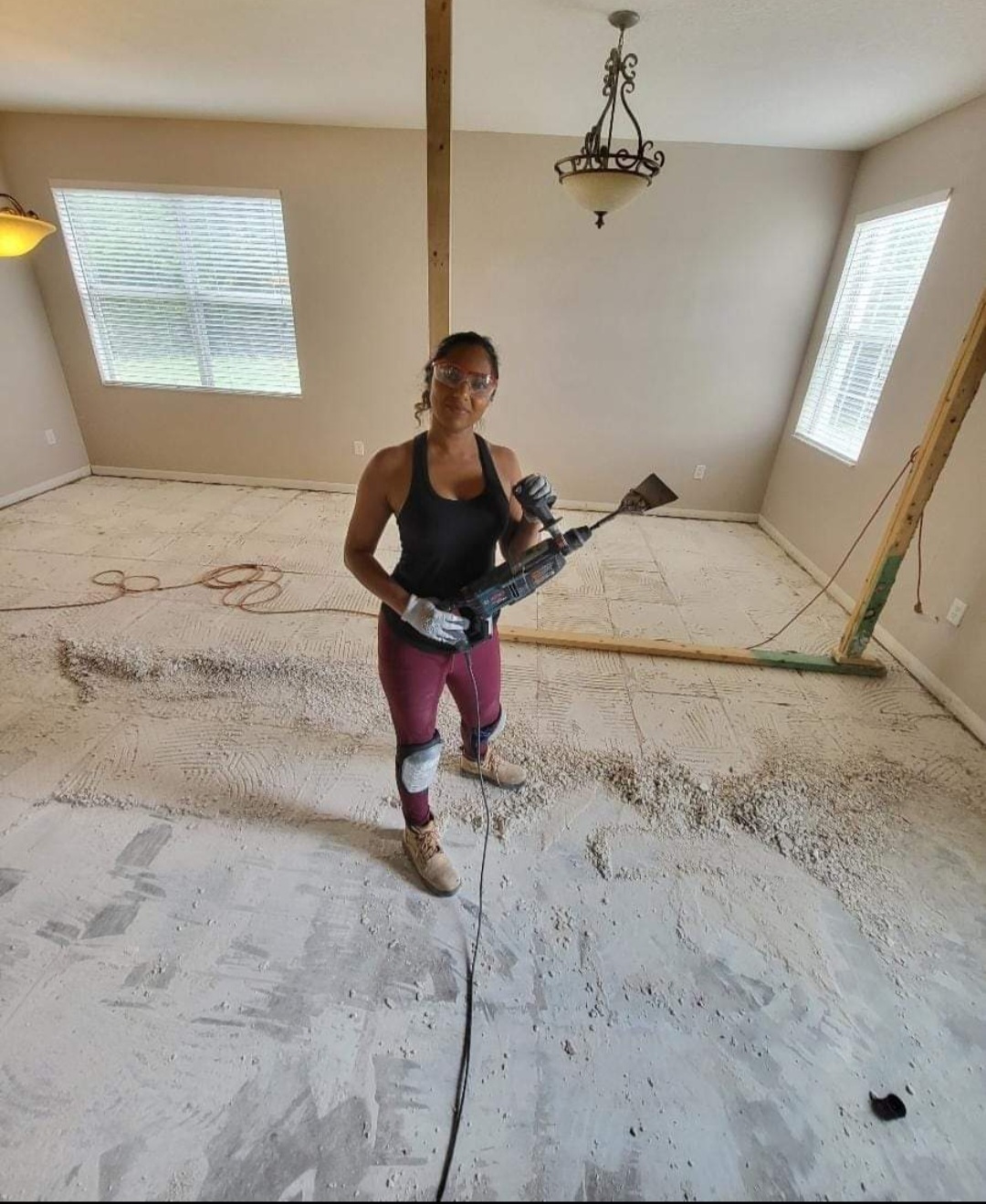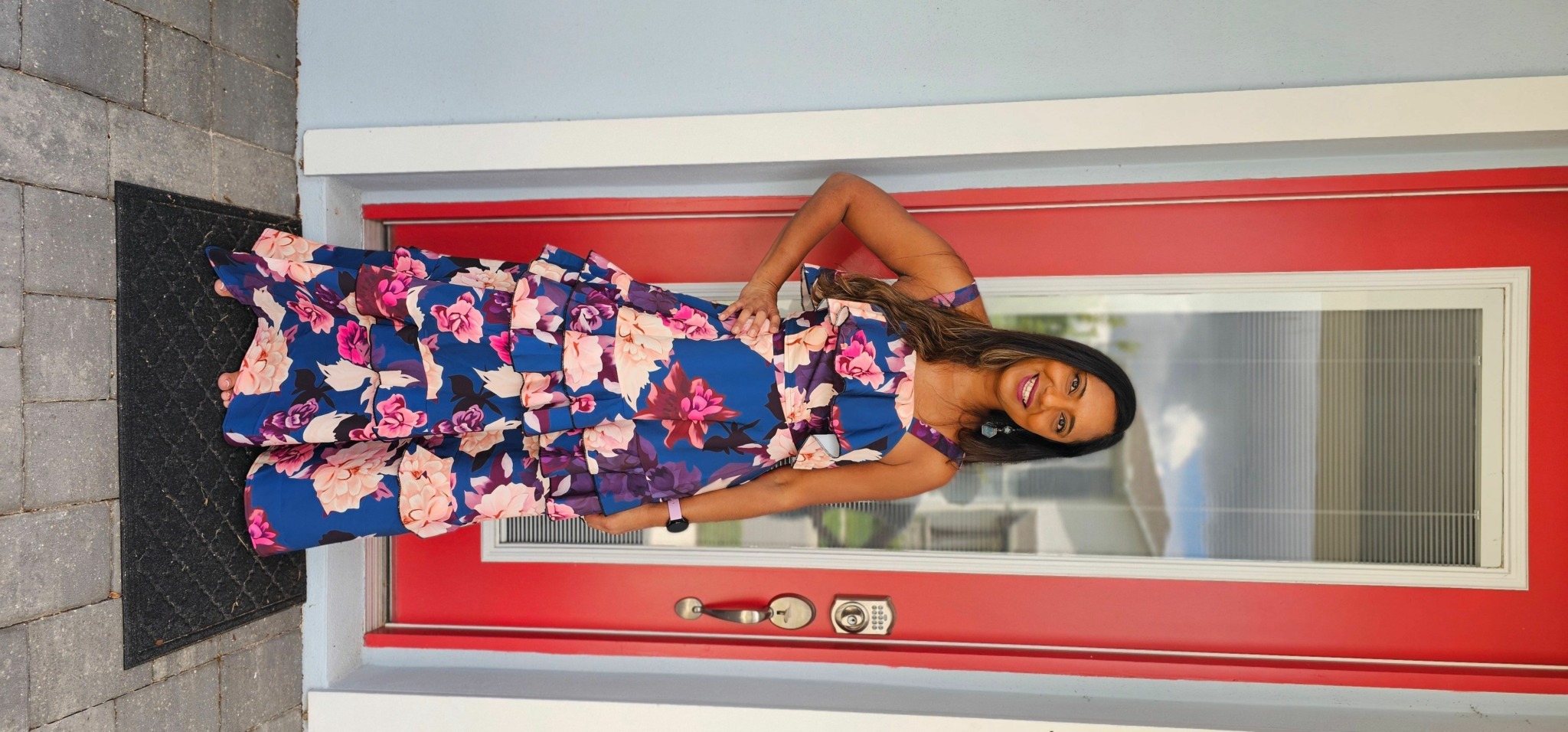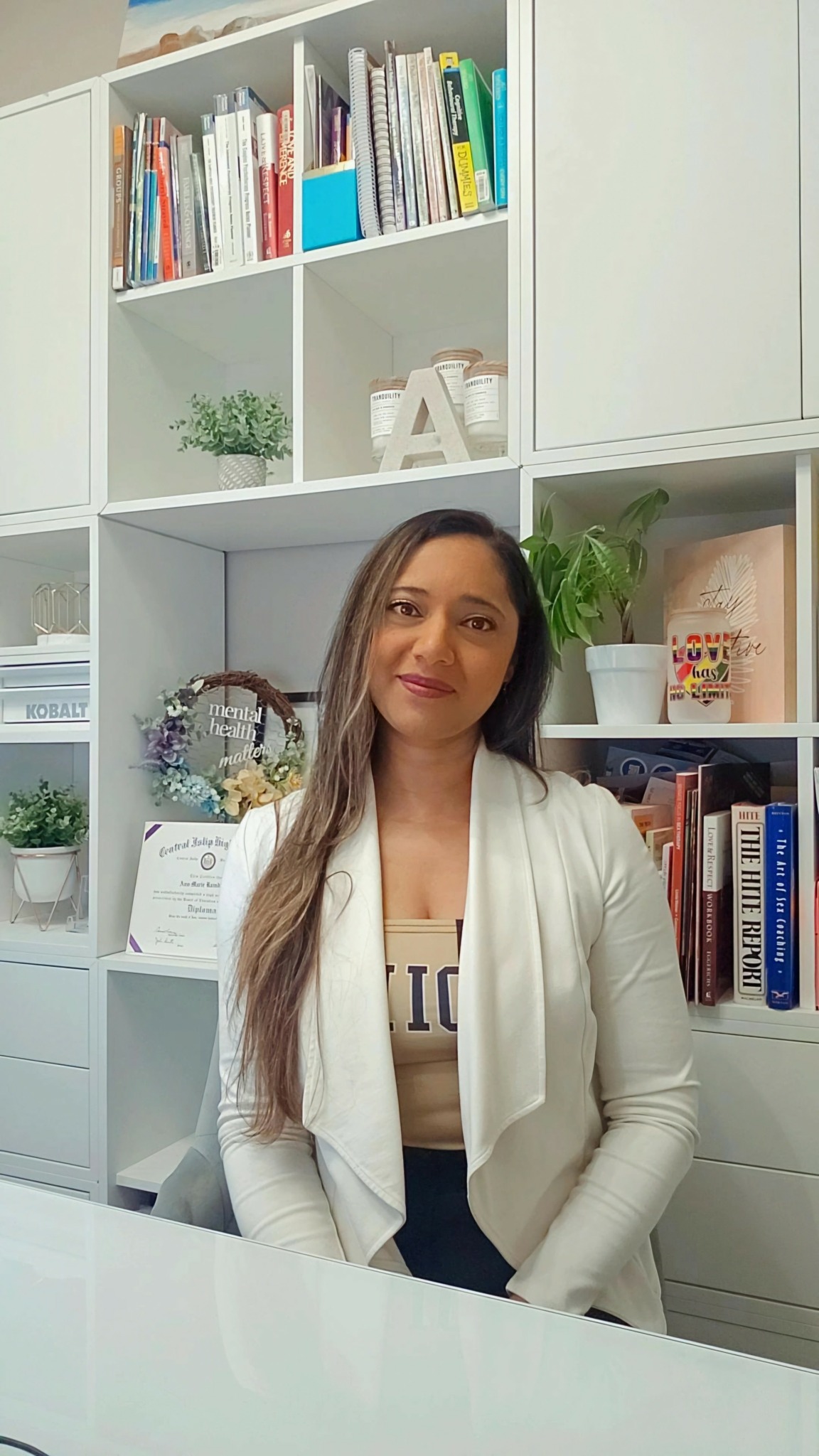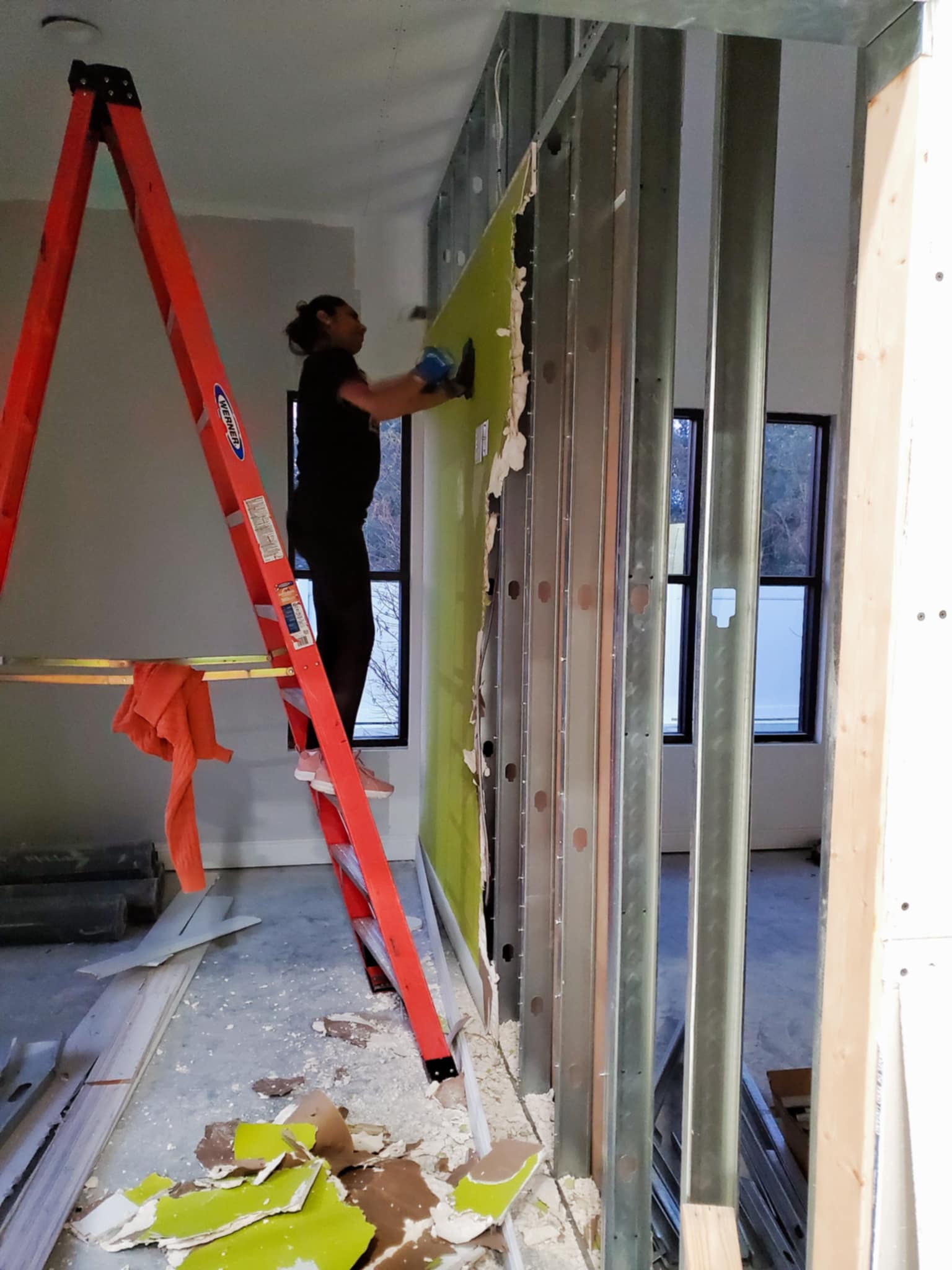We’re excited to introduce you to the always interesting and insightful Ann-marie Miglionico. We hope you’ll enjoy our conversation with Ann-Marie below.
Ann-Marie, appreciate you joining us today. Setting up an independent practice is a daunting endeavor. Can you talk to us about what it was like for you – what were some of the main steps, challenges, etc.
The decision to start my own practice didn’t come overnight. I spent time working, gaining hands-on experience, and building confidence in my skills as a therapist. But eventually, I started to feel a pull—a sense that I could offer something unique in my own space. I wanted to set my own schedule, build deep connections with clients, and create an environment where people felt safe, supported, and truly seen without the requirements of quotas that often take over the experience of patient care in other settings.
I recognized that I had developed a strong client base and had the tools needed to venture out on my own. Confidence doesn’t come fully formed—you have to trust your preparation and take calculated risks.
As a therapist, establishing who you are and how you want to help people is the foundation of your practice. Your profile isn’t just a summary of your qualifications—it’s often the first point of connection between you and a potential client. People aren’t just choosing a therapist; they’re choosing you.
When I wrote my therapist profile, I realized that being genuine and authentic wasn’t just a strategy—it was essential. I wanted my clients to know, right from the start, that they could expect honesty, warmth, and a safe space when working with me.
That approach has made a difference. Clients have shared that my openness and sincerity were what made them choose me over others. They felt they could see the person behind the credentials, and that created an instant sense of trust and connection.
If you’re building your therapist biography, my advice is simple: Be yourself. Share your passion. Speak to your ideal client with honesty and care. Authenticity doesn’t just attract clients—it creates a foundation for meaningful therapeutic relationships.

Awesome – so before we get into the rest of our questions, can you briefly introduce yourself to our readers.
For those who may not know me yet, my path into the world of mental health wasn’t the one I initially set out on. I started my college journey at St. Joseph’s College in Long Island, NY, studying to become an accountant. My days were filled with numbers, spreadsheets, and plans for a career in finance. But life had other plans for me.
During my first year of college, I lost a friend to suicide. That moment shook me to my core. It wasn’t just about the grief of losing someone I cared about—it was the realization that mental health struggles often go unnoticed, unspoken, and unsupported. I couldn’t shake the feeling that I needed to do more, help more, and be there for people in their most vulnerable moments.
So, I changed direction. I shifted my focus from numbers to people, emotions, and healing. I pursued a path in mental health counseling and social work because I wanted to create a space where people felt seen, heard, and understood as well as be a strong advocate for social justice issues as a social worker.
Today, I’m proud to offer therapy services that focus on helping individuals, couples, and families navigate their mental health journeys. Whether it’s addressing trauma, anxiety, depression, relationship challenges, or personal growth, my work centers on empowering clients with tools, insights, and strategies to live healthier, more fulfilling lives. I have a strong passion for helping clients build emotional resilience and improve their self-awareness; guiding individuals through trauma processing and healing past wounds through EMDR (Eye Movement Desensitization and Reprocessing) ; supporting couples and families in building stronger communication and trust; teaching tools for managing stress, anxiety, and life transitions.
I believe that therapy isn’t just about solving problems—it’s about building connections and fostering a space where people feel safe to be themselves without judgment. My approach is genuine, compassionate, and deeply human. I’m not here to “fix” anyone; I’m here to walk alongside them as they find their way forward.
Clients often tell me that what sets me apart is my authenticity. I show up fully, and I’m not afraid to meet people exactly where they are.
I’m proud of the moments when a client has a breakthrough, when they realize their own strength, when they feel lighter after carrying so much for so long. I’m proud of creating a space where people feel they can show up in their rawest, most vulnerable form—and still feel accepted and valued.
What I Want You to Know
Your story matters. Every experience, every feeling, and every moment you’ve lived has value.
Healing isn’t linear. It’s okay to take it one step at a time.
You’re not alone. Whether you’re navigating anxiety, trauma, or relationship challenges, there’s support available—and you deserve it.
If you’re considering therapy or just want to learn more about my work, I’d love to connect. Helping others heal has become my life’s calling, and I’m so grateful to be able to do this work every day.
Thank you for letting me share my story with you. If it resonates, if you’re ready to take the next step, or even if you just want to start a conversation, I’m here.

Let’s talk about resilience next – do you have a story you can share with us?
There’s a part of my journey as a therapist and business owner that’s been incredibly difficult to talk about, but I’ve learned that vulnerability has power—and sharing our stories can help others feel less alone.
A while ago, I made what I thought was an exciting decision for my growing therapy practice: I leased a commercial space. It felt like a big step forward—a chance to create a physical space where clients could feel safe, supported, and valued. When I leased my commercial space, I didn’t just sign the paperwork and step back—I rolled up my sleeves and got to work, literally. From demolition to assembling furniture and designing the layout, I was hands-on in every detail of the renovations. This space wasn’t just a financial investment; it was a labor of love and a reflection of my dedication to creating a welcoming, safe environment for my clients.
But what started with excitement quickly turned into a nightmare.
Looking back, the red flags were there. The landlord was evasive about certain details, and the neighbors weren’t welcoming or ethical. But I brushed it off, convincing myself that I could make it work—that it was all part of starting something new.
Over time, those small red flags turned into constant obstacles.
I was bullied and undermined by neighbors in ways I never expected. The landlord became increasingly uncooperative and dismissive of my concerns.
Every day felt like a fight to keep my business running in an environment that was actively working against me.
I poured thousands of dollars—and countless hours—into trying to make it work. But eventually, I realized that I couldn’t keep sacrificing my mental health, energy, and resources for a space that was actively draining me.
Walking away from that space was one of the hardest decisions I’ve ever made. It wasn’t just about the money I lost—it was about the dream I felt slipping away. I felt embarrassed, defeated, and like I had failed not just myself, but my clients and the vision I had worked so hard to build.
For a while, I let that experience define me. I questioned my judgment, my resilience, and whether I was even cut out to continue on this path.
But slowly, I started to rebuild—not just my business, but my trust in myself.
I let myself grieve the loss.
I reminded myself why I started this journey in the first place: to help people heal, grow, and thrive.
I learned to recognize red flags earlier and to trust my gut when something feels off.
I reminded myself that failure isn’t the end—it’s a pivot point.
And most importantly, I didn’t let one bad experience define my future.
The Lessons I Carry Forward
Trust your instincts. If something feels wrong at the start, don’t dismiss that feeling.
Environment matters. Surround yourself with people who support your growth, not those who undermine it.
Failure is not final. Losing that space wasn’t the end of my story—it was just a hard chapter.
Resilience is built in the tough moments. You don’t realize how strong you are until you have no other choice but to keep going.
Why I’m Sharing This
I’m sharing this story because I know I’m not alone. Many of us have faced setbacks—financial, emotional, or professional—that made us question everything. But those moments, as painful as they are, can also be transformative. Speaking out about the adult bullying I experienced has been incredibly empowering—not just for me, but for others as well. Business owners have reached out to share their own stories of facing similar challenges, and many have expressed how my openness gave them the courage to acknowledge their experiences and take steps toward addressing them.
Adult bullying is a serious issue often overlooked, but its impact can be just as damaging as childhood bullying. It shows up in workplaces, relationships, and communities through intimidation, manipulation, exclusion, and verbal abuse. Everyone deserves respect, dignity, and safety—regardless of age. Speaking up, setting boundaries, and seeking support are powerful steps in addressing and overcoming adult bullying.
Today, my practice is growing again, in a different way—not just because I worked hard, but because I learned to trust myself again. I learned to let go of what wasn’t serving me and to keep moving forward.
If you’re in a place where it feels like you’ve “lost it all,” please know this: You are not stuck. You are not finished. You can rebuild, you can recover, and you can come back stronger.
Thank you for allowing me to share this part of my journey with you. If this story resonates with you, or if you’re navigating your own season of loss and rebuilding, know that you’re not alone—and you’re capable of so much more than you realize.

Other than training/knowledge, what do you think is most helpful for succeeding in your field?
While training, education, and technical knowledge are foundational for any therapist, true success in this field goes far beyond what you learn in textbooks or workshops. It’s about who you are as a person and how you show up in the therapy room. Here are the qualities I believe make the biggest difference:
Emotional Intelligence
Being able to understand, regulate, and express your own emotions while holding space for someone else’s is essential. Emotional intelligence helps therapists:
Stay calm and present in emotionally intense moments.
Read between the lines of what’s being said.
Build trust and connection with clients.
Why it matters: Clients can sense when you’re truly present with them. Emotional intelligence creates a space where they feel safe and understood.
2. Authenticity
Clients can tell when someone is being genuine versus when someone is just reciting therapeutic jargon. Being real, showing vulnerability (when appropriate), and letting clients see your human side fosters connection and trust.
Why it matters: Therapy isn’t just a professional exchange—it’s a human relationship built on trust.
3. Adaptability
No two clients are the same, and no two sessions are alike. Being able to adapt your approach, techniques, and energy to meet the unique needs of each client is crucial.
Why it matters: Flexibility ensures that therapy feels tailored, not transactional.
4. Active Listening
Listening goes beyond hearing words—it’s about being attuned to body language, tone of voice, and pauses. Active listening allows therapists to:
Pick up on subtle cues.
Ask deeper, more meaningful questions.
Show clients that their voice truly matters.
Why it matters: People don’t just want to be heard—they want to feel deeply understood.
5. Resilience and Self-Care
This work is deeply emotional. Therapists absorb heavy stories and hold space for pain day after day. Without resilience and self-care practices, burnout is inevitable.
Why it matters: A therapist who takes care of themselves can show up fully and consistently for their clients.
6. Communication Skills
Therapists must be able to communicate complex ideas in simple, digestible ways. Whether it’s explaining coping techniques, setting boundaries, or offering feedback, clarity is key.
Why it matters: Miscommunication can create barriers. Clear, compassionate communication keeps the relationship strong.
7. Compassion and Non-Judgment
At the heart of every successful therapeutic relationship is compassion—the ability to hold space for someone’s pain, flaws, and mistakes without judgment.
Why it matters: Clients need to feel they can share their deepest fears and vulnerabilities without fear of being shamed.
8. Patience
Healing is not linear. Progress is not always obvious. Therapists need patience—not only with clients but also with the process itself.
Why it matters: True change takes time, and a patient therapist provides the steady support clients need to keep going.
9. Commitment to Growth
The best therapists are those who remain lifelong learners—not just about psychology and techniques, but about themselves, their biases, and their emotional triggers.
Why it matters: Growth ensures you remain effective, self-aware, and compassionate in your practice.
10. A Strong ‘Why’
Finally, having a clear sense of purpose—a reason why you entered this field and why you continue to show up every day—will carry you through the hardest moments.
Why it matters: Your ‘why’ will anchor you when you face challenges, self-doubt, or emotional fatigue.
Final Thought
Therapy is as much about who you are as it is about what you know. Clients aren’t looking for perfection—they’re looking for someone they can trust, someone who shows up authentically, and someone who believes in their capacity to heal.
Training may open the door, but these qualities are what allow you to stay in the room and truly make a difference.
Contact Info:
- Website: https:tranquilwatersfoundation.org
- Instagram: https://www.instagram.com/tranquilwatersfoundation
- Facebook: https://www.facebook.com/tranquilwatersfoundation
- Linkedin: https://www.linkedin.com/in/ann-marie-miglionico-lcsw-student-ph-d-of-clinical-sexology-73486741/


Image Credits
Headshots by Ricky Serrano Photography
https://rickyserrano.com/
https://www.facebook.com/rsphotographyllc/
https://www.instagram.com/rickyserranophotography/?hl=en


